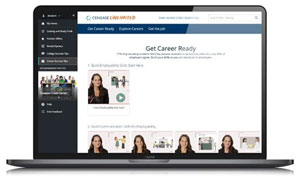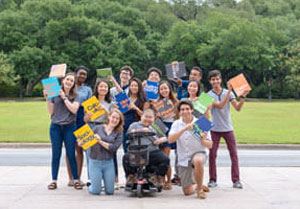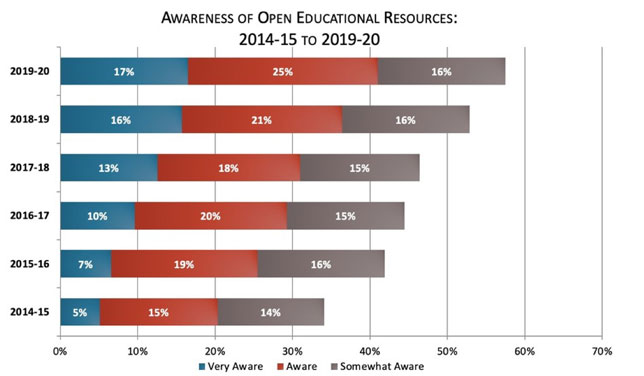Electronic Textbooks
E-books are being widely adopted as alternatives to traditional textbooks. Here you'll find articles detailing new developments in the area of e-book and e-textbook technologies, along with stories about institutions adopting them.
Ed tech company Cengage has launched a new product that integrates digital course materials into an institution's learning management system.

Education technology company Cengage is adding more than 100 new employability modules within its Cengage Unlimited course materials subscription service.
SUNY Polytechnic Institute is launching a new online bookstore in an effort to reduce textbook costs and increase the accessibility of course content.

In 2020-2021, the majority of college students (58 percent) used digital course materials more than in the previous year, according to a survey from the National Association of College Stores.

Campus bookstores have a critical role to play in open educational resource efforts, according to a recent report from the Driving OER Sustainability for Student Success Collaborative. Yet there is room for improvement in the way stores list and fulfill learning materials and make OER options available to students.
Textbook publisher FlatWorld has introduced new capabilities for its homework and online reader platforms as well as 11 new and recently revised titles in its course materials catalog.

OpenStax, Rice University's open educational resources initiative, is reviewing and updating images, examples and other materials in its textbooks to improve diversity and representation.

In higher education, faculty awareness of open educational resources — course materials that are freely available for use, reuse, adaptation and sharing — has grown for the fifth straight year, according to a study by Bay View Analytics.
California's National University, a nonprofit institution serving adult learners, educators and veterans, is ramping up its textbook affordability initiative to offer students better pricing as well as expanded purchasing choices for course materials.
A recent student survey on the use of open educational resources at the University of Maryland, Baltimore County garnered positive responses from the majority of respondents, who reported engaging with the low- or zero-cost digital course materials and homework tools.